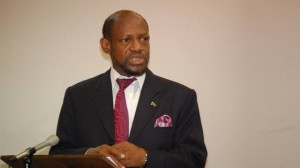 In a recent poll conducted by renown Jamaican-based pollster it was revealed that the electorate of St. Kitts believes that the country is headed in the wrong direction and that Labour is heavily favoured as the Party of choice to lead the government. In a scientific poll consisting of a sample size of 1100 likely voters, only 33.6% of the population viewed the country as moving in the right direction whereas significantly 61.2% thought that the country was heading in the wrong direction.
In a recent poll conducted by renown Jamaican-based pollster it was revealed that the electorate of St. Kitts believes that the country is headed in the wrong direction and that Labour is heavily favoured as the Party of choice to lead the government. In a scientific poll consisting of a sample size of 1100 likely voters, only 33.6% of the population viewed the country as moving in the right direction whereas significantly 61.2% thought that the country was heading in the wrong direction.
Among the top issues rousing public concern are those listed right with the indicated percentages of respondents that identified them as major set-backs for the country. Crime, corruption and nepotism are at the head of the pack with victimisation and the Citizenship By Investment programme attracting significant attention as weighty national issues.
Furthermore, the poll found that all of the candidates and elected representatives associated with the Team Unity government display sagging favourability indices within their respective constituencies largely due to issues of corruption, nepotism, incompetence and victimisation. The table at left reveals the alarming state of affairs of the Team Unity candidates.
Two of the most revealing statistics about the electorate’s perception of the present Team Unity government and its leader compared to the previous Labour Party administration and its leader are the comparative Job Ratings of both administrations and the Favourability Ratings of the two Prime Ministers, Douglas and Harris. When asked how they rate Douglas and Harris on the basis of how they performed as Prime Minister, 73.8% said that Douglas did a good job as opposed to 36.0% who responded in a similar fashion for Harris. 57.6% reported that Harris is doing a poor job and 22.4% made the same conclusion about Douglas. On the question of who would do a better job going forward, 61.4% were convinced that Douglas would do a better job, 23.2% thought that Harris would, and 13.2% were undecided.
In a head-to-head match-up on the subject of favourability on a national scale, Douglas outpaces Harris almost 2 to 1 whereas on the unfavourability statistic, it is shown that Harris has an unfavourability rating that is more than twice as high as Douglas’. The Table below provides the precise figures.
It is clear that if an election were called today, the electorate would vote strongly in support of Douglas and the Labour party to replace Harris and the Unity government.
